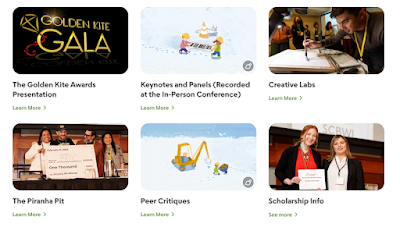VeryWell Mind defines a liminal space as “the uncertain transition between where you've been and where you're going physically, emotionally, or metaphorically.
To be in a liminal space means to be on the precipice of something new but not quite there yet.
The word "liminal" comes from the Latin word “limen,” which means threshold.”
Not here, and not there. Not past, and not yet. Now now, and not then.
We all have lived through liminal spaces, whether we realize it or not. Grief is a liminal space. So is hope. Or being engaged. Or pregnant. Or watching a loved one go through hospice.
Sometimes we get stuck in these places, when the thing we’re waiting for changes or never comes. Sometimes exiting one liminal space ushers in another.
When it comes to our writing, we move through many liminal spaces.
A story germinates as an inkling in the back of our head, then simmers, turning into something more.
A first draft is a liminal space, where we are telling the story to ourselves for the first time.
Having work out on submission is a liminal space, where we may struggle to keep writing other projects as we wait to hear news.
The bottom line - liminal spaces are slippery things. It can be hard to recognize when we’re in one, and even harder to know how to embrace that liminality and make magic happen while we’re there.
But here’s my challenge to you–
The liminal spaces are where the true work takes place, taking your stories from good to transcendent.
So at this point, you may be thinking - okay, I understand the concept of liminal spaces. I even can understand how they can be useful to us, even magical. But how can I write through these spaces, when I don’t know which way is up or down?
Great question. Honestly, moving within a liminal space is different for everyone. But I’ll share with you a few things that helped me continue my writing practice, even while not entirely knowing where I was going to end up.
1. Be gentle with yourself.
In other words, allow yourself to just be. So much of creating is just being. Is just presence. Allow yourself to fully feel, without worrying about productivity or what may happen as you feel those feelings. Trust in yourself to know the way back home. Because the best work comes out of these feelings.
2. Establish rituals.
Grounding elements help me feel a connection to my writing practice even when my life or my project feels like a disorienting liminal space. Lighting a candle, steeping tea, starting with a poem, or even just re-reading something you wrote last session can help you find your footing in these moments.
3. Stop worrying about quality.
You can’t move through a liminal space with your judgmental mind, or your editor mind. It’s about intuitiveness, flow state, and trusting your gut. I’d even recommend not fixing little errors like grammar or punctuation, and just commit to the stream of words. There will be time later for that exacting, precise part of you. For now, you just have to let the magic of the present moment, of not knowing, take over.
4. Focus on doing versus getting somewhere.
Liminal spaces can’t be forced. You can’t will-power your way through the in-between - you’ll just find yourself right back where you started. But at the same time, that doesn’t mean you aren’t making progress.
Focus on the act of writing. Focus on consistently sitting down to do the work, without worrying about how much you’ve done or where the work is getting you. Focus on the why versus the what.
And when you emerge, you’ll be surprised at how far the work you have already done has taken you when you weren’t looking.
Okay, so now that we have a few tools under our belt, back to my story. Where did working in this liminal space take me?
When I started writing The Night Fox, a tale about grief and mental health and magic, because I had to, for myself. But also because when I was going through the darkest time in my life, it was the book I wish I had. The book I couldn’t find. And on the chance that someone else out there was going through something similar… I had to write it for them too.
The story was unconventional to be sure - between the magic and the faith elements and the dual narrative arcs and poetry thrown in there to boot, I worried the story wouldn’t find a home. It didn’t fit neatly into a box… but that was the point. Neither does grief, or love.
Facing those daunting edits, I was in a liminal space, and so was this story. My life wasn’t easily defined or held to one shape, and neither was the story I was writing–and neither were the stories and lives that have had the most impact on me as a person and as a writer–and I would guess the same is true for you.
There’s something about the stories that are birthed from these liminal spaces that are raw and authentic and just deeply true in a felt sense that’s hard to put your finger on. These are the stories that change the world.
So how do you forge ahead in a liminal space? This might be the question you’re holding now, either in your life or in the story you want to write.
And the answer may surprise you -
You don’t.
You don’t force things. You don’t forge ahead, blasting through walls, feelings be damned.
You sit with it. You feel. You slowly push deeper into yourself, and the story. You give the emotional truth time to reveal itself by slowly but surely probing deeper into the heart of things, trusting that it’ll one day become a clear picture.
That isn’t an easy process. It’s hard, taking steps that feel blind. But that’s when the magic of the liminal space takes over.
So there I was, faced with that cursed editor’s note, that insisted I dig deep into feelings I didn’t want to touch - in other words, lean into my liminal space.
I returned to my beloved grad school as a graduate assistant for the summer residency and sat with my feelings. I soaked in the craft and the astounding courage of the community. I pulled it all in until I felt full. Then I sat down. And cried. And wrote out a plan.
Sitting in the faded blue armchair at my favorite coffee shop, I finally arrived at the part of the story that was hardest for me. It wasn’t the climax or the flashiest part. But for me, it hit the deepest.
I wrote the scene.
I hurried to pack my things.
I made it to my car and closed the door.
And I sobbed.
But I knew the story was complete. I knew I had honored my liminal space, and because I worked with it, instead of in spite of it, something magical had unfolded on the page.
That’s the thing, writing about the liminal. You may be writing fiction. But the feelings are real. You know it’ll be worth it, in the end. To tell the story you need to tell, to reach the reader who desperately needs that particular story. But I’m not going to lie - it can hurt. But it can heal too. Both yourself, and your readers.
Turns out, that draft was my best work yet.
So to all my writers who feel broken, invisible, opposing realities held in one beautiful, flawed body… don’t give up. You’re simply in a liminal space. You’re not alone - there are others here, beyond their own thresholds, making something beautiful, even if they don’t know it.
Somewhere, someone needs the story you have yet to tell. Don’t give up on you. Don’t give up on your stories. Don’t give up on the magic. Keep on feeling and sitting and writing and transforming - and you’ll find it may just become the story of your dreams.
Ashley Wilda is an Arab-American, neurodivergent, queer, disabled writer and mental health advocate living in eastern Virginia. Their debut novel The Night Fox, a YA magical realism tale written in poetry and prose about mental health and nature, was published in 2023 with Penguin Random House, and her following YA contemporary novel, Cleave, will be published by Penguin in 2026. They hold an MFA in Creative Writing for Children and Young Adults from the Vermont College of Fine Arts. In addition to writing, they love rock climbing, exploring the mountains, creating art, and adventuring with their husband, Ethan, and rescue pup, Phoenix. Find Ash on Instagram: @ashleywilda_ or at www.ashleywilda.com.














